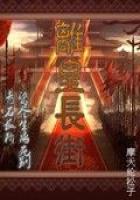Born in 1758, Horatio Nelson, the son of a pastor, was a small, frail child who loved sailing. As a young teenager he joined the British navy and, while journeying to the East Indies, caught a fever that seriously damaged his health. But he never allowed this to hold him back. At age 18 he was appointed a lieutenant in the Royal Navy and by the year 1802 was made commander-in-chief of the British fleet.
Two years later, at the Battle of Trafalgar, Nelson defeated the combined French and Spanish fleets. This was the greatest naval victory in British history and left the British in control of the seas for the rest of the 1800' s. Unfortunately, Nelson was mortally wounded during Trafalgar but lived long enough to know that his fleet had won the battle. His last words were, "Thank God I have done my duty."
Nelson was a man of fearless courage and devotion. He believed in his country, in his cause. and in himself. He proved this with his words and more so with his life. He once said, "I am of the opinion that the boldest measures are the safest." Nelson was a man greatly admired by others who said about him, "His frail body housed a great spirit."
One person with a belief is equal to a force of ninety-nine who only have interest.
First, beliefs are remarkably powerful in that they are to our lives what a rudder is to a ship. That is, they control the direction and destiny of our lives. While we don' t always live the life we profess, we always live the life we believe. Simply put, if I believe I am a failure, I will set myself up to fail. If I believe I am a successful person, I will succeed, and so on.
A well-known author and psychologist says, "An individual's self-concept (what he believes about himself) is the core of his personality. It affects every aspect of human behavior: the ability to learn, the capacity to grow and change, the choice of friends, mates and careers. It' s no exaggeration to say that a strong positive self-image (self-belief) is the best possible preparation for success in life."
Self-belief is not an egotistic "I' m the greatest" attitude. This is self-deception and a cover for deep insecurity. Believing in yourself is knowing and accepting your weaknesses as well as your strengths and believing with God' s help that you can overcome your weaknesses and develop and use your strengths.
One very successful woman, a well-known entertainer, didn' t have much going for her. She would never have won a beauty contest and at age 38 was living on welfare. After reading Claude Briston' s The Magic of Believing and beginning to believe in herself, her life took a dramatic turn. One gift she had was the ability to make people laugh. Once she believed this, she didn' t allow what she didn' t have to stop her using what she did have.
Jimmie Durante was another entertainer who wouldn' t have made a fortune with his looks. But he capitalized on his weakness and turned it into one of his greatest strengths. He didn' t focus on his physical attributes—what he didn' t have—but on his strengths—what he did have—and put these to good use because he believed he could.
1758年,霍雷肖·纳尔逊出生于一个牧师家庭,身材瘦小的他很喜欢航海,十几岁时加入英国海军。在去往东印度群岛的途中,高烧严重损害了纳尔逊的身体,但是他从不允许这点影响阻止他前进。18岁的纳尔逊被任命为皇家海军的海军上尉,1802年,晋升为海军舰队总司令。
在两年后的特拉法加大海战中,纳尔逊击败了法国和西班牙的联合舰队。这是英国海军历史上最大的一次胜利,英国因此得到了战后19世纪的海域控制权。不幸的是,纳尔逊在特拉法加大海战中身负重伤,可是一直坚持到自己的舰队大获全胜才壮烈牺牲。他最后说道:“感谢上帝,我完成了自己的使命。”
纳尔逊是一个勇敢、无畏牺牲的人。他信仰自己的国家,信仰自己的理想,信仰自己。纳尔逊用自己的语言,更在自己的生活中证实了这一点。他曾经说过:“我相信,最大胆的做法也是最安全的。”纳尔逊是一位受人敬重的伟人,人们这样评价他:“在他瘦弱的身体里,蕴藏着一种伟大的精神。”
一个有信仰的人,可抵99个只有兴趣的人。
首先,信仰的强大力量在我们生活中的作用,就像船舵对船只的作用。也就是说,信仰掌控着我们生活的方向和命运。我们通常并不是按照我们所期望的那样生活,却是按照我们坚信的那样生活。举个例子,如果我相信自己是一个失败者,那我注定要失败。如果我相信自己是一个成功者,我就会成功。
一位著名的作家、心理学家说:“一个人的自我定义(他对自己的信心)是他人格的核心。它影响着人类行为的每个方面:学习的能力,成长与改变的能力,对朋友、伴侣和事业的选择等。毫不夸张地说,一个坚定的正面自我形象(自我信念)是生活中最好的成功准备。”
自信,并不是一种狂妄地认为“我最伟大”的态度。自大的态度是一种自欺行为,是对内心深处不安的掩饰。相信你自己,就是要像你的优点一样,了解并且接受你的弱点,相信你能在上帝的帮助下克服弱点,发展并好好利用自己的优点。
一位著名的女演员,曾被认为没有多大潜力。在选美比赛中,她从来没赢过一次,到38岁的时候还靠社会福利生活。在读了克洛德·布莱斯顿的《信心的魔力》一书之后,她开始对自己有信心,生活发生了翻天覆地的变化。她所具备的天赋便是拥有引人发笑的能力。她曾经坚信,她不允许自己的不足阻碍她利用自己所具有的天赋。
杰米·杜兰特是另外一个很好的例子。他是一个没有利用相貌而成功的演员,他利用自己的不足,将其转变成自己最大的优点。杰米·杜兰特并不在意自己的身体特征——他不具备的英俊相貌,而是将精力集中在自己的优势上——他所拥有的天赋,并将这些优点好好加以利用,因为他相信自己能做到。
lieutenant [lef'tennt] n. 陆军中尉;海军上尉;助理人员
He prevailed on the lieutenant to send in a short note.
他说动那个副官,递了一张简短的便条进去。
exaggeration [i,z鎑'rein] n. 夸张;夸大之词
That may sound like an exaggeration.
这听起来似乎有些夸大其词。
egotistic [,i:'tistik] adj. 自我本位的;自负的;自高自大的
As he began to earn more money, his personality became
more egotistic.
他的钱越赚越多时,他的个性也变得越来越自负。
entertainer [,ent'tein] n. 演艺人员;表演者
She is a natural entertainer.
她是个天生的表演者。
首先,信仰的强大力量在我们生活中的作用,就像船舵对船只的作用。
自信,并不是一种狂妄地认为“我最伟大”的态度。
相信你自己,就是要像你的优点一样,了解并且接受你的弱点。
As a young teenager he joined the British navy and, while journeying to the East Indies, caught a fever that seriously damaged his health.
catch a fever:发烧
One person with a belief is equal to a force of ninety-nine who only have interest.
be equal to:胜任;合适;相等
提升自己的人生价值
Multiply Our Value
佚名 / Anonymous
Today I will multiply my value a hundredfold. If it is possible for leaves and clay and wood and hair to have their value multiplied a hundred, yea a thousandfold by man, cannot I do the same with the clay which bears my name?
I am likened to a grain of wheat which faces one of three futures. The wheat can be placed in a sack and dumped in a stall until it is fed to swine. Or it can be ground to flour and made into bread. Or it can be placed in the earth and allowed to grow until its golden head divides and produces a thousand grains from the one.














